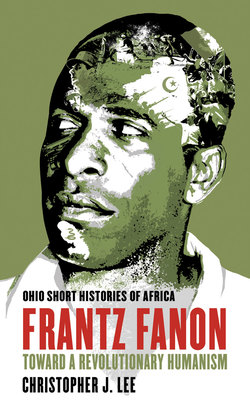Frantz Fanon

Реклама. ООО «ЛитРес», ИНН: 7719571260.
Оглавление
Christopher J. Lee. Frantz Fanon
Отрывок из книги
Frantz Fanon
Toward a Revolutionary Humanism
.....
This book is written against this perception of irrelevance. Following the lead of other scholars, it argues for Fanon’s continued significance based on his enduring insights. He was not only a critic of colonialism but an early critic of postcolonialism, with hard-won assessments that still apply to present-day Algeria and elsewhere. This book further makes this case for Fanon’s importance through the example of his life. In particular, this book stresses the form of political engagement Fanon cultivated—what I call radical empathy. Radical empathy is not an expression that he used. I introduce it in this book to reinterpret his concerns and to capture the individual, rather than national or anticolonial, politics he defined and exemplified. Indeed, Fanon ultimately declared himself Algerian, exemplifying a revolutionary transformation in his own subjectivity. But radical empathy provided a first step. As a concept and practice, it seeks to move Fanon away from textual abstraction by outlining a personal and more affective dimension to his political commitments. Grounded in his medical work and his strong identification with the Algerian struggle, it outlines a political ethic beyond the antiracism and anticolonial violence he famously promoted, though this practice of moral engagement emerged from these better-known positions. Fanon’s politics were not purely contrarian. They equally sought new forms of connection and solidarity.
This approach thus not only seeks to provide an alternative understanding of his life. It intends to make him more accessible—less a myth, and more human. Since his death in 1961, Fanon’s thought has influenced activists across the world, from civil rights struggles in the United States to the Black Consciousness Movement in South Africa. More recently, the Arab Spring that swept North Africa and the Middle East in 2011 recalled earlier histories of regional political dissent, of which Fanon was a vital part. Controversy over Israeli settlements in the occupied West Bank has also revived Fanonian views toward settler colonialism. Fanon presents a genealogy of twentieth-century activism different from figures like Gandhi, Martin Luther King Jr. (1929–1968), and Desmond Tutu (1931–present), each of whom espoused nonviolence as a means for achieving political change. Similar to figures like Mao Tse-tung (1893–1976), Ernesto “Che” Guevara (1928–1967), and Amílcar Cabral (1924–1973), Fanon instead advocated certain forms of violence as a political necessity, reflecting an extended period of armed struggle during the 1950s and 1960s that included the First Indochina War (1946–54) against French rule in Southeast Asia, the Mau Mau Uprising (1952–60) in British colonial Kenya, the Cuban Revolution (1953–59) led by Fidel Castro (1926–present) and Guevara, and the turn of South Africa’s antiapartheid struggle to armed resistance, most notably through the Umkhonto we Sizwe (MK), a military organization founded in 1961 by the African National Congress and the South African Communist Party.
.....